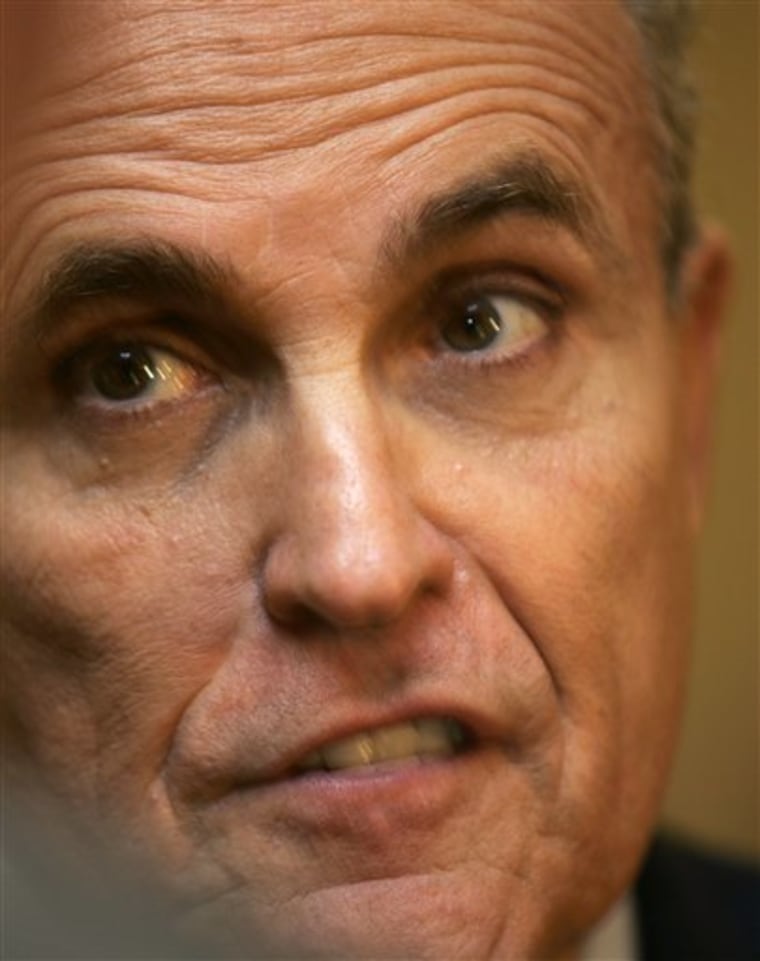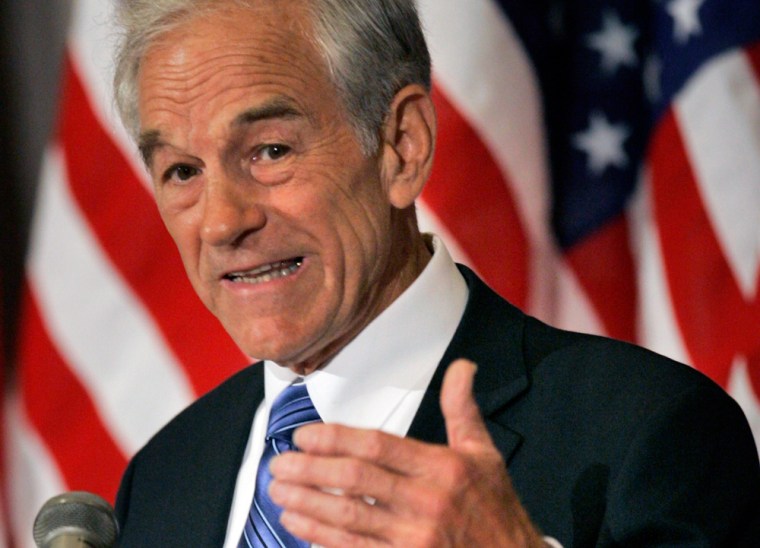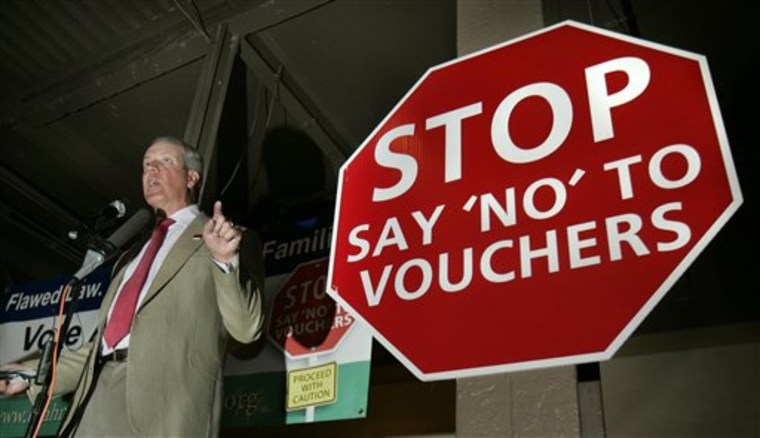Just how angry is the electorate?
Perhaps angrier than any of us imagined. It's not just anger, however, that voters are expressing toward politicians.
It appears to be downright distrust with the government itself. Tuesday’s election results may not have seen any high profile upsets for political figures (I don’t consider the scandal-plagued Kentucky governor’s loss an upset) but rather, an avalanche of rejections for new government proposals.
Ask yourself, how is it that a conservative and religious electorate in Utah said no to state government leaders who wanted to start a private school voucher program, while more liberal, secular voters in New Jersey struck down a proposal to expand stem cell research?
Or how is it that a left-of-center, usually pro-government electorate in Oregon said no to a cigarette tax increase to pay for expanded health care?
All of this happened during Tuesday’s off-year elections.
In fact, across the board it appears when presented with a choice to give government the power to start or transform a program, voters said no.
Down to defeat
On the surface, voters in Utah are generally supportive of private or religious schooling, voters in New Jersey are open to more stem cell research, and voters in Oregon want expanded health care coverage. What the three initiatives have in common is that opponents of the measures played on voters' distrust of government getting more involved. The result? All three went down to defeat.
General distrust of government is not a new phenomenon; it has been the fuel for electoral upheaval for decades. But it's important to note that there may be evidence of a much angrier and anxious electorate than either party is preparing for in 2008.
At our most recent briefing, one of the NBC/Wall Street Journal pollsters said “this is the most angry and unstable of an electorate as I’ve seen in my career.” And that’s from republican pollster Bill McInturff, who was around for 1992 and 1994, the last two times an angry electorate wreaked havoc in an election year.
Remember it was 1992 when the strongest independent candidate in two generations -- Ross Perot -- got 19% of the vote, even after he proved less-than-stable on the question of readiness to be president. And 1994 was the year Democrats lost control of Congress for the first time in 50 years. Neither was an insignificant feat.
So if the 2008 electorate is shaping up as more volatile than either of those two years, we may be in for a wild ride of historical proportions.
The presidential dilemma
The dilemma facing presidential hopefuls is how to respond to an electorate yearning for unconventional change.

Republican voters, for now, seem to be more in the mood to flirt with unconventional thinking, which may explain the relative strength of Rudy Giuliani. But can Giuliani be both a change agent and conform to the GOP at the same time? Right now, he seems to favor the latter over the former. Of course, should he get the nomination, he may shift gears, but the Giuliani of today seems to be a candidate who is trying to prove his Republican bona-fides.
And yet Giuliani has the luxury of appearing to be the most unconventional of the lot simply because of his position on social issues. No other candidate, outside of Ron Paul, seems to be attempting to be more unconventional. If anything, all of the Republican candidates (including Giuliani) are moving away from advocating radical change; arguably siding a bit more with the status quo.
On the Democratic side, Hillary Clinton is not the candidate of change, though she could be. Her last name makes it difficult simply because she appears to be a return to the past, no matter what she says. But her gender gives her an opportunity to become a mainstream radical change agent that the country could talk itself into wanting. The question is whether she'll continue to be cautious and conventional or whether she'll try to tap into this angst. There's risk, of course, but the reward could be huge.
Clinton’s two chief rivals for the Democratic nod are trying to present themselves as both mainstream and yet radical change agents, with John Edwards playing the part of angry populist and Barack Obama trying the intellectual approach. The substance of their arguments are similar; the style of their individual sales pitches are not. For now, Clinton seems to be succeeding because Democrats are split on her alternative and she’s prescribing just enough competent change for voters who are already inclined to believe government works with a competent person in charge.
Obama and Edwards may not be succeeding as well in the Democratic primary because Democrats aren’t ready to throw in the towel and say the government is completely broken. This is the party of the New Deal, the ultimate prescription that government can be part of the solution.
The path to victory
For both Giuliani and Clinton, their paths to victory are easiest if they travel the conventional path well worn by George W. Bush, Al Gore and John Kerry.

But the two are leaving themselves open to someone else becoming the agent of radical change. Maybe it is a sane Ross Perot (think Michael Bloomberg). Or perhaps someone with both the celebrity and ideology of an Arnold Schwarzenegger (Al Gore).
Maybe I discount Ron Paul too much. Maybe his supporters are the first group of folks willing to support a more radical movement toward change. And if Paul proves too quirky to be the true leader of this movement, his supporters may still be wooable to a third party candidate who shows a penchant for change.
Voters want to shake up the system, and they have little trust in their current leaders to do it, be it in Oregon or Utah or New Jersey.
It's possible the electorate could settle down over the next year and cautious change could be the prescription for what ails it. But that’s not what I’m seeing.
I’m heeding the words of Buffalo Springfield: “there’s something happenin’ out here, what it is ain’t exactly clear.”
